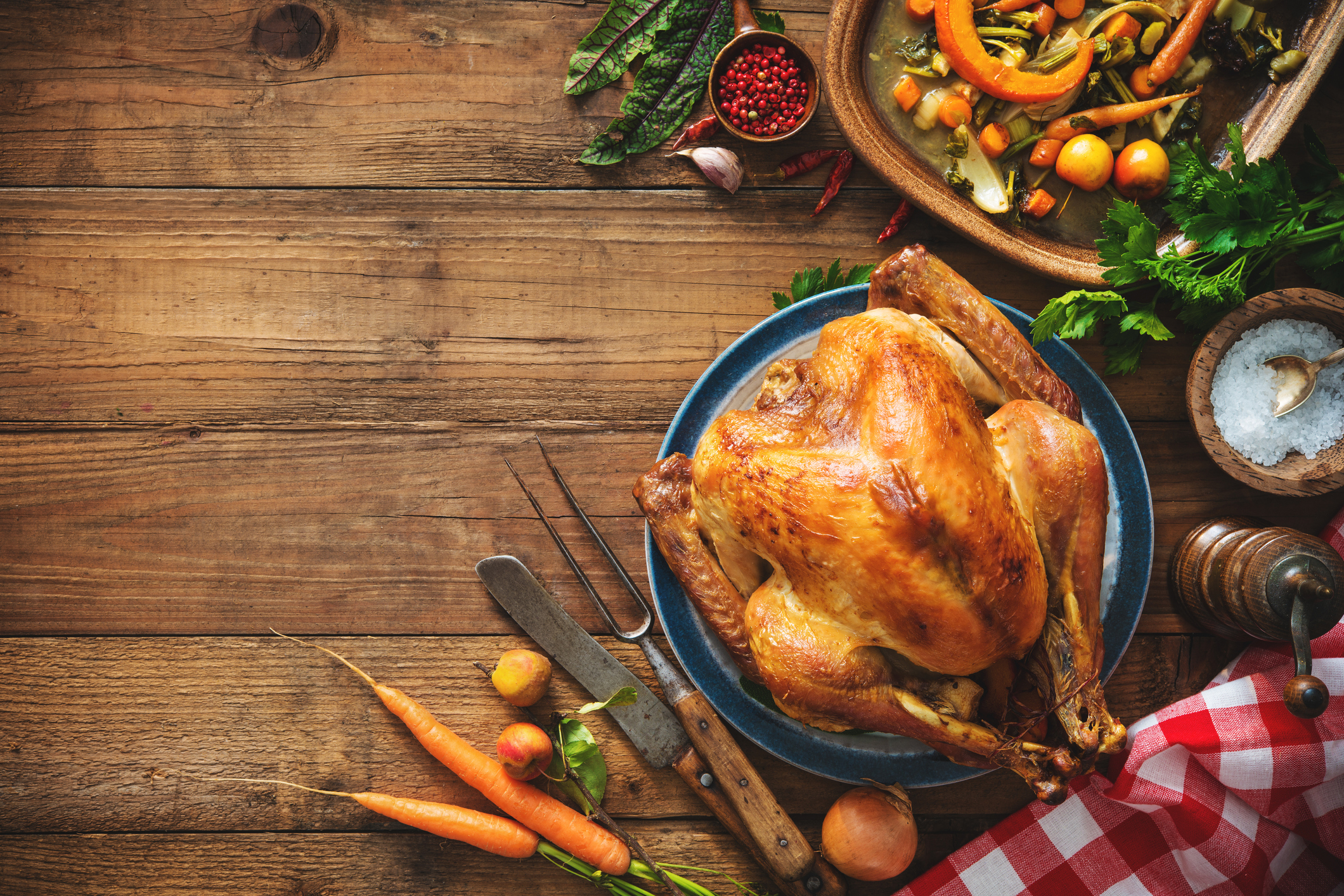For many the festive season is the season of stress as there are so many things to do, and limited time to do them in. If you are one of those individuals currently feeling more frazzled than festive, take a few minutes out of your hectic schedule to read on and discover how you can keep your brain sharp and your body fuelled at one of the busiest times of the year.
This week’s blog is provided by expert nutrition practitioner Miguel Toribio-Mateas, who provides his top three tips for enjoying the more nutrient dense traditional Christmas foods this festive season.
Keeping your brain sharp during the festive season
Christmas is upon us. The excitement of the last few days of the year, together with the rush to get all the shopping done, the social events, work do’s, oh and the card writing, can leave you feeling exhausted. “Tis natural”, for one can only pack so much in a day and during this period we’re expected to turn into supermen and wonderwomen doing a lot more than we do normally.
So, what can you do to get some of those superpowers and stay sharp, vital and “with it” during the festive season? Read on for my top three tips for a supercharged Christmas.
- Don’t go cold turkey on protein. Have it with every meal. Why? Because protein helps balance your blood glucose (blood sugar) levels, and when your blood sugar is balanced, you’re less likely to feel tired or experience foggy thinking. This is particularly important early in the day, so if you eat eggs, these are ideal for breakfast as they provide excellent protein quality, they’re easy to cook and they keep you fuller for longer, which helps you minimise sugar cravings half way through the morning. Pan fry some cherry tomatoes in a little olive oil – this helps with the release of lycopene (a super-powerful antioxidant naturally present in tomatoes), and if you add a few spring onions or leeks to the pan, the heat will also help get quercetin out of the lovely bulbs. Gut bacteria love both lycopene and quercetin, as well as the fibre in all the onion family. They produce some funky molecules called “short chain fatty acids” that help keep your gut healthy, as well as your brain.
Other sources of protein include dairy (yoghurt), cheese, nuts and seeds, legumes/pulses (e.g. lentils), fish and meat. I’m a big fan of having at least two to three different veg at breakfast time as part of a cooked meal, so I know I’m getting my rainbow of brightly coloured veg from early in the day. Plus veggies add lots of fibre – technically a carbohydrate – to your meal, which together with your healthy fats in olive oil, and your protein, means you’re having a meal that includes all your food groups.
If you apply the same principle to lunch and dinner, you’re giving your brain the best possible chance to stay sharp throughout the season, even with the unavoidable excesses and sweet temptations that are more than likely to come your way. I’m particularly keen on the brassica family of vegetables, and I absolutely love Brussels sprouts… Like that song that goes “I wish it could be Christmas everyday”… I’d be happy to have them daily.
A small serving of sprouts will give you a lovely bit of folate to support clear thinking and memory. So, if you have to plump for a type of veg, cabbages, kale, and cauliflower are all in the same family and have similar folate content.

We’d love your comments on this article
- Be berry merry. Eating berries benefits the brain, it’s a fact. There is strong scientific evidence that eating blueberries, blackberries, strawberries and other berry fruits has beneficial effects on the brain and may help prevent age-related memory loss and other changes. If I was confronted with the choice between a mince pie and bowl of mixed berries with cream (or non-dairy yoghurt if you’re off dairy) and a sprinkle of cinnamon powder, I know exactly what I would choose.
Berries are loaded with polyphenols, highly antioxidant molecules that help protect brain cells from damage by harmful free radicals which are set loose within the body by the process of “oxidation.” Oxidation is normal and happens in every body tissue, but because the brain is largely made of a very delicate type of fat, it is more prone to damage by these pesky free radicals.
So think of berries as your anti-ageing cream for brain tissue, but a cream you take internally. As your brain is protected from ageing by polyphenols in berries, there’s a change in the way the neurons in the brain communicate with each other, and these changes can prevent inflammation that can lead to brain cell damage, resulting in the memory loss we’ve become used to accepting as a consequence of the ageing process.
So have your mince pie, by all means, but perhaps be mindful of how many you’re having and have a handful of berries and a few nuts every now and then. Nuts such as almonds and walnuts also provide you with healthy fats that help with brain repair, and with fibre that feeds your gut bacteria, so this combination makes for a perfect dessert or snack.

- Your big fat Christmas dinner. Are you stuck for choices for the key meals of the season? What about also having some meals which include good sources of omega 3 fatty acids like salmon, mackerel, or sardines, at least for the starters? What about a salmon bake or a mackerel tart, or one of my mum’s specialities, sardine cannelloni. Any of these, whichever way you can get them, are great replenishers of the type of healthy fats that aid with brain health and regeneration. Plus, omega 3s are known to support a healthy mood to go with the merriness of the season. My preference is for wild Alaskan salmon which doesn’t contain as many of the nasties (antibiotics, hormones, etc.) as farmed salmon. Mackerel and sardines tend to be wild anyway and are small fish, so they accumulate fewer pollutants than bigger fish.
Hope my tips are useful and that you have a fabulous Christmas. I wish you all the very best and look forward to many more blogs in 2018.

Miguel is a doctoral researcher in cognitive ageing who’s experienced the research process from the laboratory bench – having completed a lab-based Masters in Clinical Neuroscience focusing on brain ageing – to the delivery of science findings in the consultation room, delivering quality individualised nutrition care to his clients from 2009. Miguel’s background includes 15+ years in senior training roles in life sciences and medical publishing, and he has trained scientists and researchers around the world.
With many thanks to Miguel for this blog; if you have any questions regarding the health topics that have been raised, please don’t hesitate to get in touch with Clare via phone; 01684 310099 or e-mail clare@cytoplan.co.uk
Last updated on 13th December 2017 by cytoffice



Thank you for this inspiring blog. Was wondering what to put on my food shopping list. Just what I needed to hear to keep my food intake more balanced over the festive season…very fond of comforting German Xmas biscuits… and to help keep me focused when I m studying during the holidays.